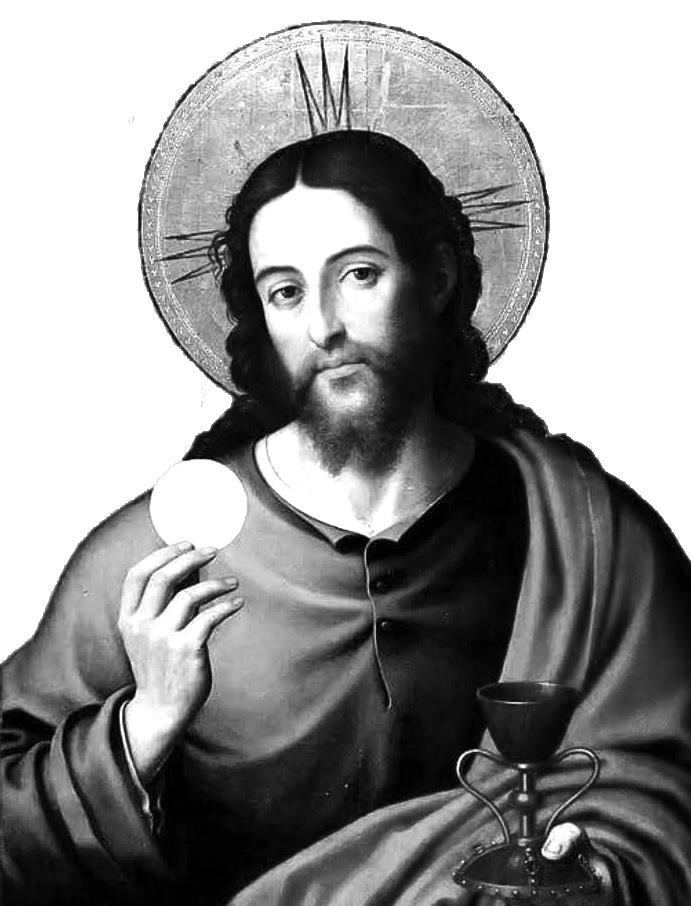
4 minute read
April NUDCCW Convention based on theme I AM the Bread of Life
by Carolyn Keller NUDCCW vice president
In keeping with its role to be wise, courageous, and loving leaders in the Church, the New Ulm Diocesan Council of Catholic Women (NUDCCW) has chosen
Advertisement
“I AM the Bread of Life” as the theme for its 62nd annual convention on April 29 to be hosted this year by the Church of St. Mary in New Ulm.
The theme aligns well with the United States Conference of Catholic Bishops National Eucharistic Revival, a movement to “renew the Church by enkindling a living relationship with the Lord Jesus Christ in the Holy Eucharist.”
The theme will be elaborated upon through our keynote and afternoon speakers and the viewing of the Vatican International Exhibition Eucharistic Miracles of the World on loan from Spirit Catholic Radio.
Morning presenter
The keynote speaker will be Liz Kelly, a native of New Ulm and a graduate of Cathedral High
School. Kelly is a retreat leader and the award-winning author of 12 books. Her most recent book, “Love Like A Saint: Cultivating Virtue with Holy Women” (March 2021), has been called “penetrating and graceful,” “a source of encouragement and hope,” and “a beautiful deep dive into the lives of inspirational, holy women.” Currently residing in Minnesota with her husband Vincent, Kelly co-hosts the Logos podcast “Deep Down Things.”
Afternoon presenter Berny Berger, the Council of Catholic Women president of St.
The best way to invite Christ into the rhythm of our lives is to immerse ourselves in the sacraments because that is where God’s grace is most readily available in this world.
by Fr. Ed Dougherty, M.M The Christophers News Note
Thirteenth-century Italian mystic Saint Angela of Foligno wrote, “Christ appeared not as a philosopher of many words or as one who disputed noisily. . . . but in the utmost simplicity did he talk with men, showing them the way of truth in his life, his virtues, and his miracles.” These words point to a profound reality about how Christ invites us into a relationship that is simple and seamless in how it blends into the rhythm of our lives, yet is also miraculous and transformative.
introduces the Divine Life into us. Confession restores it when it’s lost through sin. Confirmation strengthens it. Matrimony and Holy Orders give it vocational direction. Anointing of the Sick prepares us for the transition to our heavenly homeland. And the Eucharist is meant to Christify us.”
Willibrord in Gibbon will speak in the afternoon. Her presentation will cover the story of Blessed Carlo Acutis, an Italian Catholic teenager from Milan, Italy, who died in 2006 at the age of 15 of leukemia. He was beatified Oct. 10, 2020, in Assisi. Acutis was a gamer and computer programmer who loved soccer and the Eucharist. On display will be “Eucharistic Miracles of the World,” a Vatican International Exhibition designed and created by Acutis, who made the art for the panels before his death. His goal during his short life was to help bring others closer to Jesus through awareness of the mystery of the Eucharist. Check out https:// carloacutis-en.org. You can also see all the panels in his exhibit at www.miracolieucaristici.org/en/ Liste/list.html. For the complete NUDCCW Conference agenda, visit www.nudccw.org.
Registration
Check with your parish for registration details or visit the NUDCCW website. In addition, family members who would like to attend one or both of the presentations may register for one of the presentations for $10.
If we want to know what it must have been like to encounter Christ and to experience that gentle, merciful aspect of his character, if we’re going to respond to Christ’s invitation to understand God’s wisdom through the simplicity of a loving relationship with him, we can partake in the sacraments of our faith. The best way to invite Christ into the rhythm of our lives is to immerse ourselves in the sacraments because that is where God’s grace is most readily available in this world.

In a piece she wrote for Loyola Press, entitled “A Little Reminder on Why the Sacraments Are a Really Big Deal,” award-winning writer Elizabeth (Liz) Kelly says, “They have the power to bring heaven to earth, rip the veil between all things seen and unseen, and allow humanity and eternity to commingle in mysterious, yet palpable ways. Through the sacraments, heaven comes, not just to visit but to live with us and in us. In the sacraments, we are graced.”
Detailing the unifying yet varying purposes of the sacraments, Bishop Robert Barron writes: “All the sacraments have a deifying purpose: Baptism
Looking at the nature of the sacraments in this way, we can see how they are the gift Christ has given to the Church to accompany us on our journey through life. For those of us who regularly partake in the sacraments, let’s renew our zeal and sense of awe over this gracefilled aspect of our lives. And let’s also be sure to give witness through the love we have in our hearts so that others can discover or rediscover this tremendous wellspring of God’s grace. We should focus specifically on giving witness to the transcendent nature of the sacraments for the young people in our lives. As Elizabeth Kelly writes: “It is particularly important for us to teach children that sacraments are so much more than a ceremony to prepare for; they are God’s way of reaching down to us and offering us a lifelong gift – a gift of grace that gives us a glimpse of heaven and a taste of eternity.”
So, let’s recognize Christ alive today within the sacraments, and let’s meet him there as often as possible and cultivate that profound relationship that blends into the rhythm of our lives and opens our hearts to the path of holiness.
Editor’s note: Fr. Ed Dougherty serves on the Christophers’ board of directors. For a free copy of the Christopher News Note write: The Christophers, 5 Hanover Square, New York, NY 10004 or e-mail: mail@christophers.org
by Fr. Mark Steffl, STL, JCL
The biggest section in the Code of Canon Law is that which deals with “Institutes of Consecrated Life and Societies of Apostolic Life,” totaling 173 canons. Beyond that, there are many documents outside of the Code of Canon Law which also govern those who are in religious communities, whether they are contemplative (devoting themselves exclusively to praying for the Church) or those who are apostolic (contributing to the work of the Church in catechesis, teaching, evangelization, parish work, nursing, and so many other ways).
There are hundreds (if not thousands) of different religious “institutes” in the Church. These








